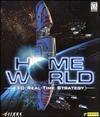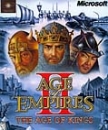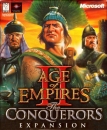AAA games these days are known for being very risk averse. The sheer costs it takes to make today's high-end games means that Publishers have turned to relying on safe-bet franchises over everything else. If there is a New IP being made, it's usually cut from the same Live-service, Open-world mold as those are what's hot right now apparently. In a sea of franchises and Copy-Cats, The 3 platform holders, Nintendo, Sony, and Microsoft don't seem to fall into this trap nearly as much. In fact, first party games from these three, also happen to be the most original and unique games of this generation, some even surpassing a lot of today's third party blockbusters.
Sony Interactive Entertainment, has been gaining critical and commercial acclaim unlike anything its ever seen with its PS4 output. Games like Horizon Zero Dawn, Astro Bot, God of War, Spider-Man, Until Dawn, Dreams, and upcoming games like Ghosts of Tsushima have captured caught the industry's attention for their scope, ambition, and overall quality. I know it's become sort of a meme to label Sony's recent titles as the same Cinematic third-person, action game. And while it's true a lot of first party games on the PS4 feel like that, not many publishers these days would even bother releasing something like Gravity Rush 2 or Concrete Genie. Even in the "Cinematic" games, there's often stories and content most third party games of similar production would avoid like the plague. So while it's true, most of Sony's games tend to be somewhat formulaic, they still bring something interesting to the table.
Microsoft's Xbox Game Studios has struggled the past few years. Many of its studios have closed, Games were tragically cancelled, and the Big 3 Xbox franchises have long since overstayed their welcome. It's easy to argue they've been the weakest of the three first party wise this gen, but lately Microsoft's been trying to fix that. They've acquired several studios over the past year or so, and not only that, they're promising to give them an unlimited budget, and large degree of creative independence. Considering the length of Game Development, we'll have to wait until next generation to see where this goes, but even ignoring that, Microsoft was still able to finance some interesting titles this generation. Insomniac Games' Sunset Overdrive was well received, Rare's Sea of Theives had a less than stellar launch, but from what I've heard, has gotten better with each update. And Ori and the Blind Forest is considered one of the best games on the system, and its sequel is arriving very soon. There's also Ninja Theory's upcoming Bleeding Edge, which seems like an interesting take on the Overwatch style multiplayer game.
Finally, there's Nintendo, Co. Ltd. Of the three, Nintendo is the most dependent on its IP and homemade software. They're the "Sanrio" of gaming, using its iconic Mascots like Mario, Kirby, Pokemon, Link, Yoshi, DK, and more to fuel often critically acclaimed Software, along with licensed merchandise and media. But even with it's IP-driven business model, Nintendo is still committed to games and ideas that nobody really has seen before. There's Splatoon, a multiplayer shooter that focuses on ink and territory control with a distinct style all its own. ARMS, a 3D arena fighter where you play as combatants with Stretchy ARMS. Nintendo Labo, a series of Cardboard based Construction Toys using the Switch and its Joy-Con in new ways. And their newest creation, Ring-Fit Adventure an RPG played entirely using a Pilates Ring and Leg Strap to do fitness moves and actions. There's also smaller titles like Snipperclips, 1-2 Switch, Astral Chain, Sushi Striker, and even Brain Age that very few, if any publishers have a recent equivalent to. Even in established franchises, Nintendo games often ooze with ideas and creativity. Even when you play a game in a long running series like Luigi's Mansion 3, you feel like you're playing a game that the developers wanted to make, not a game that was simply made because of corporate mandates.
I think the reason the Platform holders aren't as creatively stagnant as most big third party publishers is their need to make their consoles stand out, as game development and hardware gets more and more standardized, there's more preasure on the platform holders to try and make games that make their console stand out, and that means touching games and ideas that other publishers wouldn't touch with a 10 foot pole.




















































